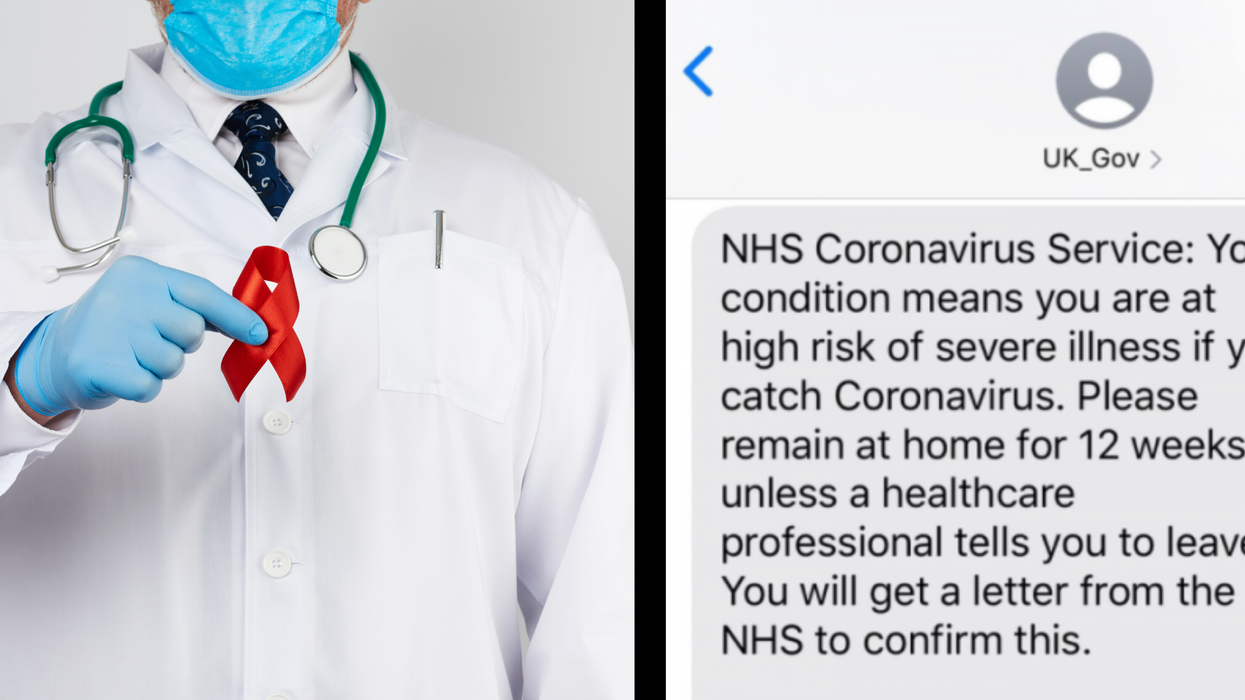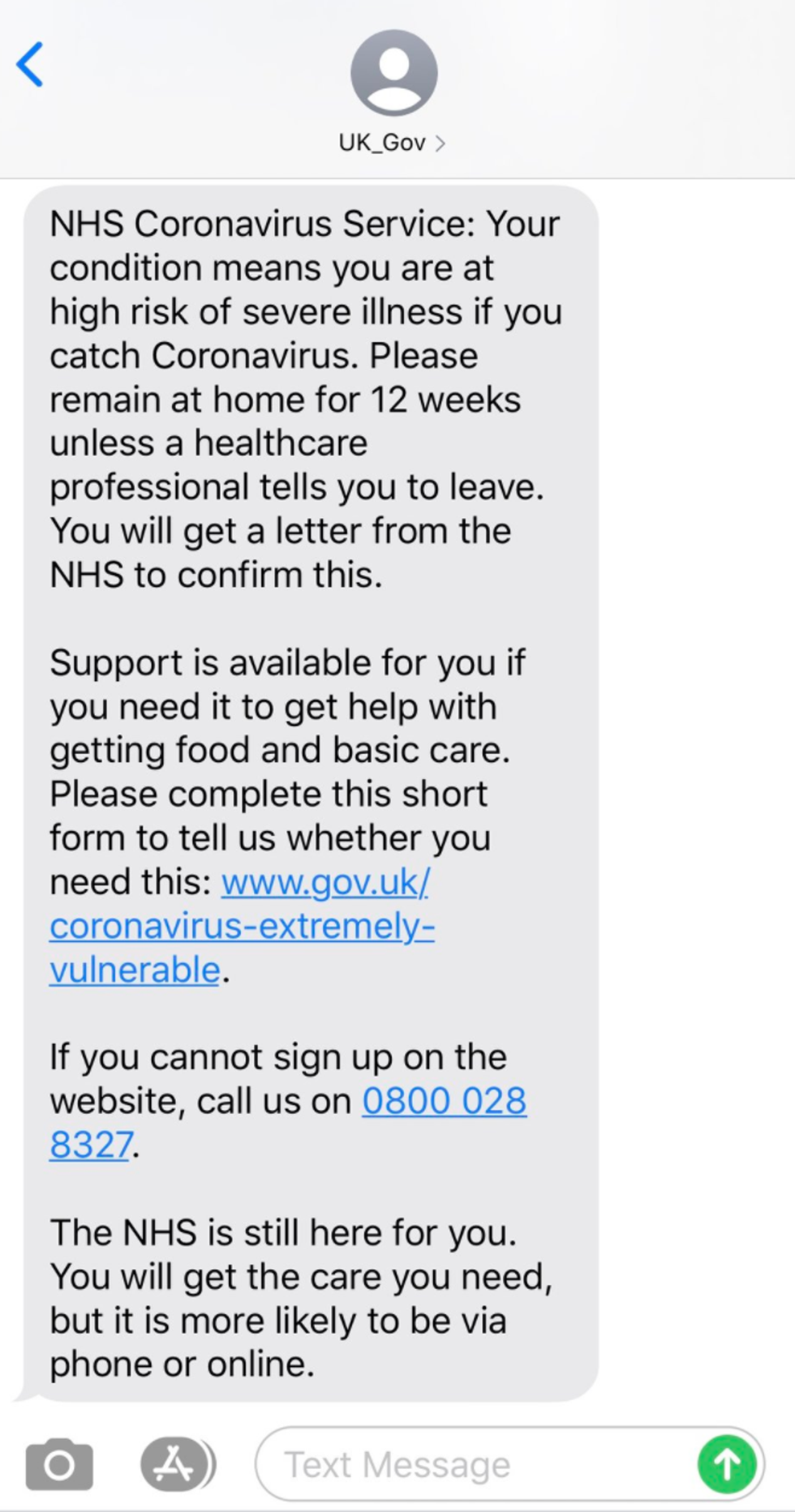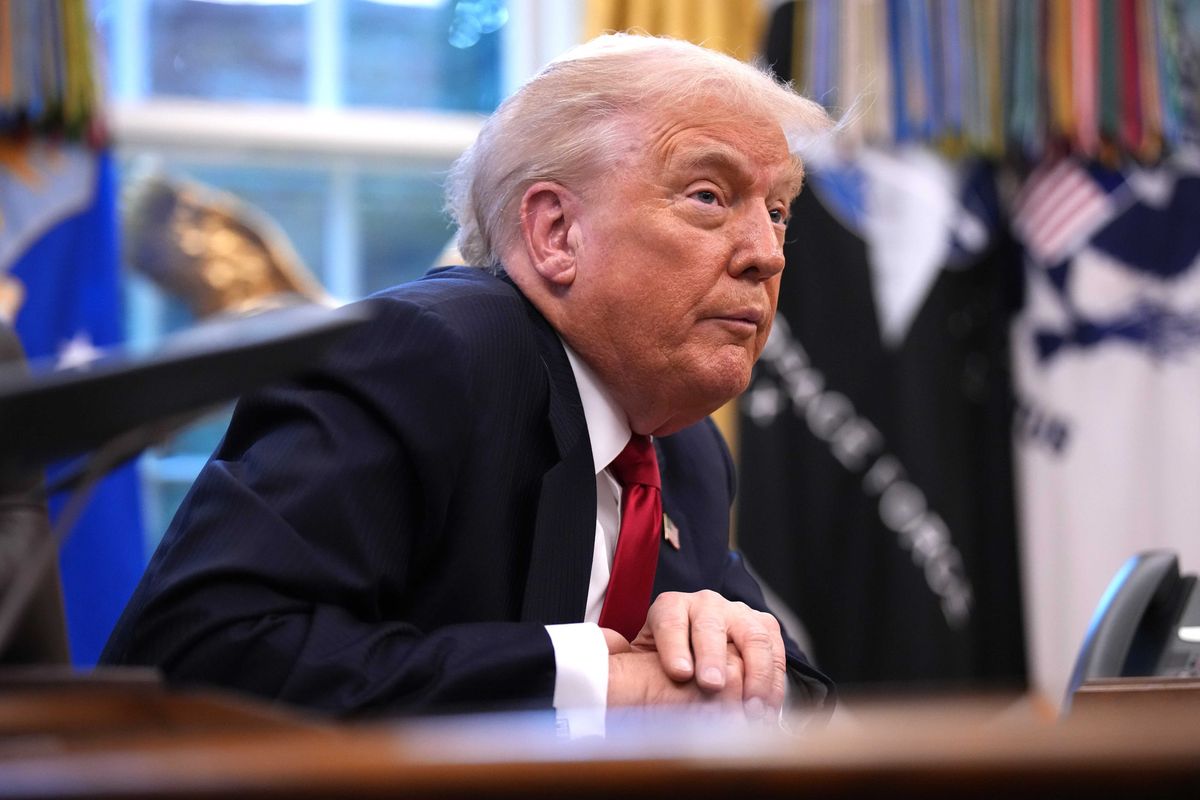News
Sirena Bergman
Apr 11, 2020

iStock/Twitter/indy100
According to a number of screenshots shared across social media earlier this week, it seems the British government has been texting people who are HIV positive, suggesting they need to "stay home" for three months because they are at "high risk of severe illness".
This directly contradicts the current advice, which states that only people who are HIV positive but not currently in treatment or have other health conditions are at serious risk and should self-quarantine.
According to Terrence Higgins Trust:
There is no evidence, nor guidance, that people with well-controlled HIV should shield.
Yet the text – which is believed to have been sent in error to everyone living with HIV in England – claimed that:
Your condition means you are at high risk of severe illness if you catch Coronavirus.
Please remain at home for 12 weeks unless a healthcare professional tells you to leave. You will get a letter from the NHS to confirm this.
The British HIV Association (BHIVA) has written to Chief Medical Officer Christ Whitty to ask for clarification, BuzzFeed reports.
BHIVA issues a statement saying that "there remains no evidence that people with well controlled HIV need to shield".
It also tweeted that the government advice "is not in keeping with the accepted message that those with well controlled HIV are not at increased risk of Covid-19". The National Aids Trust also tweeted a clarification, saying that people should refer to BHIVA for the "most accurate advice" on the issue.
We're seeking clarity from @DHSCgovuk on these text messages. Please see @BritishHIVAssoc for the most accurate adv… https://t.co/oFHbislTuq— National AIDS Trust (@National AIDS Trust) 1586282241
Dr Laura Waters, an HIV consultant and chair of BHIVA, told BuzzFeed that she believes the text was a misguided attempt to correct the omission of HIV from the government list of conditions on the "shielded" list.
"Shielding" measures differ from the social distancing advice given to the general public insofar as they recommend people do not leave their home at all, and isolate from other members of their household as much as possible.
People on the list are primarily advised to ask "family members, friends and neighbours" to offer support in accessing their needs (such as buying food and medication). However, this is obviously not an option for everyone, so there is government support available. But by not listing HIV as one of the conditions that could require shielding, people were concerned they were not entitled to public help, making following the measures extremely difficult.
Walters said that BHIVA had been "gently pushing to include people who are vulnerable in terms of HIV-related factors", but the list still doesn't mention HIV.
She claimed that the text came "with no warning at all" and that neither BHIVA nor the NHS's clinical reference group knew that it was being sent.
On Twitter, she advised people to ignore the advice unless they had another medical condition which was included in the list.
While we try to understand why @DHSCgovuk have texted people with well controlled #hiv to shield PLEASE IGNORE unle… https://t.co/JAKwxUYW5f— Laura Waters (@Laura Waters) 1586270830
The mixed messages from the government on this issue have obviously caused distress and confusion among those living with HIV.
@BritishHIVAssoc @DHSCgovuk @EACSociety Lot of folk got “that” text today who are in perfect health, according to a… https://t.co/i4Z6gnkIek— Wayne Bond (@Wayne Bond) 1586276309
I'm now receiving emails and messages from people with HIV utterly confused about whether to shield or not. There i… https://t.co/8zFVCCDLrB— Patrick Strudwick (@Patrick Strudwick) 1586343960
There are currently believed to be around 103,000 people living with HIV in England, of which 93 per cent are diagnosed. Around 90,000 people are believed to be diagnosed, treated and virally suppressed or "undetectable", meaning they cannot pass the virus on and are not believed to be in any greater risk when it comes to coronavirus than the general public.
Top 100
The Conversation (0)














